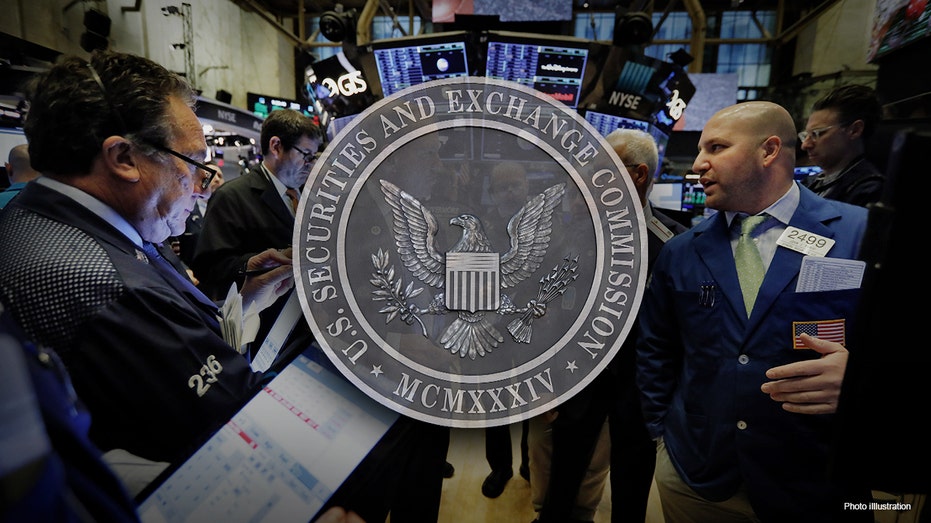SEC chairman calls for new restrictions on executive stock-trading plans
Speaking at The Wall Street Journal’s CFO Network event, Gary Gensler says he wants to revise the rules to reduce the risk of improper insider trading
The Securities and Exchange Commission is drafting a proposal that would restrict plans that corporate insiders use to avoid insider-trading claims when buying or selling their own company’s stock.
Speaking Monday at The Wall Street Journal’s CFO Network event, SEC Chairman Gary Gensler said he is seeking to revise rules that govern the arrangements, known as 10b5-1 plans. Insiders set up plans ahead of time and use them to schedule future trades. The arrangement gives executives a defense against insider-trading claims that would stem from having undisclosed material nonpublic information at the time of a trade.
The plans often generate controversy because there is no required public disclosure of a plan at the time an insider sets one up. Some investors say plans can be manipulated because, for instance, executives can modify or cancel them. Public companies sometimes disclose the plans to mitigate the perception that executives are trading on nonpublic information.
SEC MULLS GAMESTOP, AMC ‘GAMIFICATION’ CRACKDOWN WITH REGULATORY LAYER
The SEC passed a rule creating 10b5-1 plans in 2000. The agency’s officials were aware of weaknesses in the structure, former SEC Commissioner Joseph Grundfest said in 2013, but the agency hasn’t refined the rule.
Gensler suggested Monday that rule changes are now due. "In my view, these plans have led to real cracks in our insider-trading regime," he said.

The Securities and Exchange Commission is drafting a proposal that would restrict plans that corporate insiders use to avoid insider-trading claims when buying or selling their own company’s stock. (Photo by SAUL LOEB/AFP via Getty Images)
He added that regulators would "ensure we are identifying and punishing abuses of 10b5-1 plans" under the current rule.
A group of researchers at Stanford University, the University of Pennsylvania and the University Washington reported this year that some executives use the plans to conduct "opportunistic, large-scale selling of company shares."
One red flag, according to the researchers: Some insiders set up plans for a single trade that occurred within 60 days of the plan’s creation. Those trades, on average, allowed the executives to avoid losses of 4%, defined as the stock’s performance relative to industry peers during the six months following the first sale.
"The fact that the SEC is looking at this is smart and timely," said Jina Choi, a partner at Morrison & Foerster LLP and former head of the SEC’s San Francisco office. "There do seem to be some gaps, especially when you look at the academic studies."
The SEC has brought relatively few enforcement actions over trading linked to a 10b5-1 plan, Choi wrote in a client note last year. The last SEC case was brought in January 2012.
In one such case, the SEC in 2009 accused former Countrywide Financial Corp. Chief Executive Angelo Mozilo of insider trading related to 10b5-1 plans he had set up. Mozilo settled the claims in 2010 without admitting or denying wrongdoing.
Trading apps could see some regulation in the future, SEC Chairman Gary Gensler told WSJ's Jean Eaglesham at the CFO Network Event.
CLICK HERE TO READ MORE ON FOX BUSINESS
An SEC proposal could try to reduce the risk of improper trading by requiring insiders to wait four to six months after a plan’s conception before trading; putting limits on plan cancellations or modifications; disclosing their adoption and any changes; and curbing the number of plans that executives can set up.
"Insiders can cancel a plan when they actually do have material nonpublic information," Gensler said. "This seems kind of upside-down to me. It also may undermine investor confidence."
The Council of Institutional Investors asked the SEC in 2012 and 2013 to rein in 10b5-1 plans, saying they were subject to abuse. At the time, the SEC didn’t revise the rule that permits the plans.
Gensler also addressed changes at the Public Company Accounting Oversight Board, a body that oversees public-company auditors. The SEC last week fired the PCAOB’s chairman, William Duhnke, a Republican appointed in 2017. The SEC’s two Republican commissioners criticized the move.
The PCAOB wasn’t living up to its role and mission as a setter and enforcer of auditing standards, Gensler said. "I supported taking a new direction and reinvigorating this important organization," he said.
Gensler has also signaled the SEC is drafting new rules or guidelines for special-purpose acquisition companies, a deal-making structure that flourished during the past year as an alternative to the traditional initial public offering. Mr. Gensler has questioned whether SPACs, which raised more than $100 billion this year, are good for small investors, who may not understand their complex structure and conflicts of interest.
Gensler, a Democratic appointee, took over control of the SEC in April. He was chairman of the SEC’s sister agency, the Commodity Futures Trading Commission, during the Obama administration. At the CFTC, he implemented rules intended to reduce risk and increase transparency in the swaps market, after unregulated trading helped inflame the 2008 financial crisis.
CLICK HERE TO GET THE FOX NEWS APP
The CFTC under Gensler pushed most standardized swaps trades onto exchanges and required them to be guaranteed by clearinghouses.




















